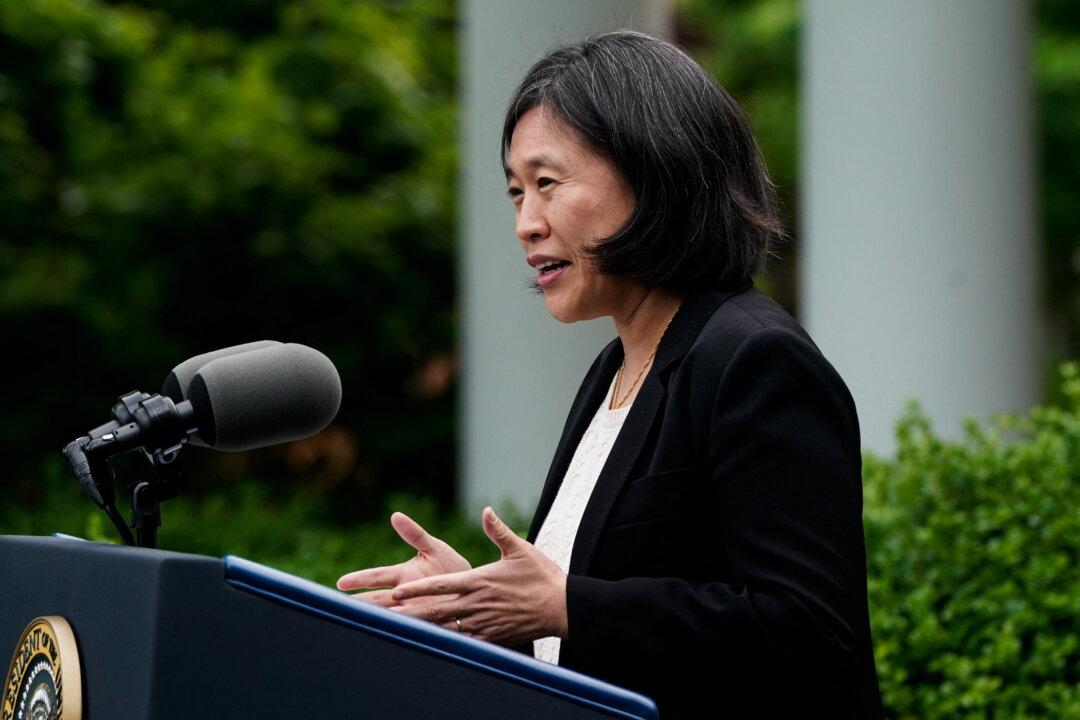WASHINGTON—U.S. Trade Representative Katherine Tai on Monday said fighting inflation is a more complicated issue than can be addressed with a “singular focus” on China tariffs, and that it was important to bring a “thoughtful, deliberate, strategic” approach to the U.S.–China trade relationship.
Tai, in remarks to the Washington International Trade Association, said inflation was “scary” and hurting Americans’ pocketbooks but was a complicated issue with many causes.





